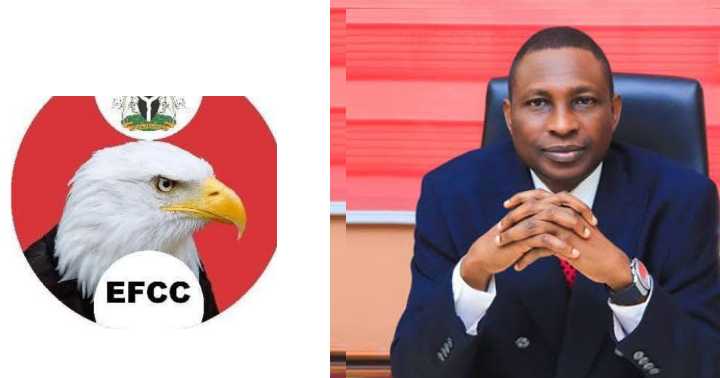Stop Supporting Corrupt Politicians! EFCC Chief Sends Strong Message to Nigerians
EFCC Chief Sends Strong Message to Nigerians, Corruption remains one of the greatest obstacles to Nigeria’s development, draining resources meant for public welfare and crippling essential services. In a strong appeal to citizens, the Chairman of the Economic and Financial Crimes Commission (EFCC), Ola Olukoyede, has urged Nigerians to take a firm stand against corruption by refusing to shield those who embezzle public funds. Speaking at the 38th Anti-Corruption Situation Room (ACSR) Conference in Abuja, Olukoyede emphasized that national progress depends on collective accountability, calling on citizens to reject corrupt practices and demand justice.
“This fight is not just for the EFCC or the government; it is for all Nigerians,” Olukoyede declared. “When we provide clear evidence that someone has stolen public money, do not rally in their defense. Instead, demand that they return what belongs to the people.” He further encouraged citizens to report corrupt activities within their communities, warning that inaction would continue to erode national progress. “If we don’t stand against corruption, it will keep destroying our future. When funds meant for hospitals, schools, and water supply are stolen, it is the ordinary people who suffer the most,” he added.
Supporting this stance, renowned human rights lawyer and Senior Advocate of Nigeria, Femi Falana, called on anti-corruption agencies to adopt more stringent measures, including prosecuting individuals who organize protests defending corrupt officials. “It is not freedom of expression when people gather to protect someone who has stolen public money. That is freedom to support corruption,” Falana asserted. He challenged the EFCC to take legal action against such individuals, arguing that they obstruct the course of justice. Falana also advocated for the establishment of anti-corruption agencies at state and local government levels to ensure the proper utilization of public funds. “Nigeria’s money is not only being stolen at the federal level. There is massive looting in states and local governments too. We need strong anti-corruption bodies across the country,” he stated.
Kole Shettima, the Country Director of the MacArthur Foundation, highlighted the severe impact of corruption on everyday Nigerians, particularly in sectors such as healthcare, education, and infrastructure. “It’s not just about quoting sections of the law. It’s about real issues—water, education, electricity, maternal health. These are the things that matter to our people. If we do not fight corruption effectively, the most vulnerable in our society will continue to suffer,” Shettima remarked. He cited instances where mismanaged funds have jeopardized access to essential services, including HIV/AIDS treatment, and stressed the necessity for accountability that transcends mere rhetoric. “About 1.9% of our citizens who rely on antiviral drugs now risk losing access because the funds meant to support them have been mismanaged. What happens to them? We need accountability that delivers real change,” he added.
Olanrewaju Suraju, Convener of HEDA, emphasized that anti-corruption agencies must move beyond promises and undertake decisive actions. “It is not for civil society organizations or the media to do the biting; it is for law enforcement agencies. The EFCC must ensure that those who steal public funds are brought to justice promptly,” Suraju insisted. He also called for increased collaboration between civil society and law enforcement to create a formidable front against corruption.
The conference concluded with a consensus that combating corruption requires a collective effort from all sectors of society. Participants agreed that by refusing to shield corrupt individuals and demanding accountability, Nigerians could pave the way for sustainable development and a more equitable distribution of resources.
This clarion call from the EFCC and allied organizations underscores the imperative for every Nigerian to actively participate in the fight against corruption, thereby securing a prosperous future for the nation.

